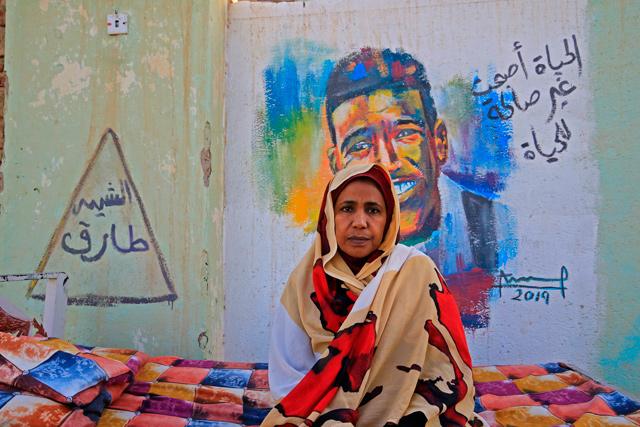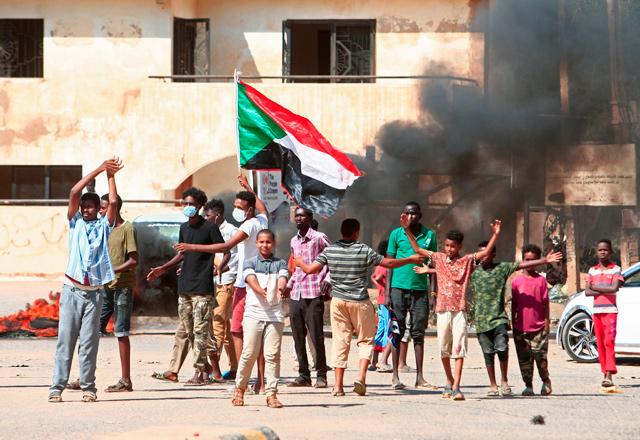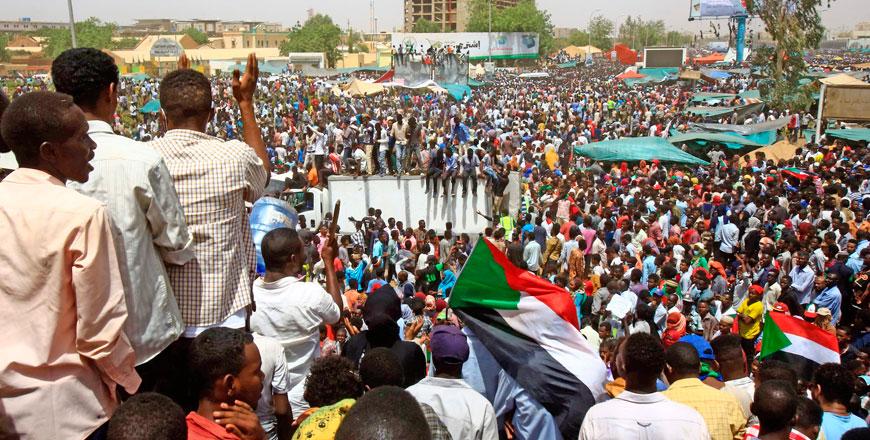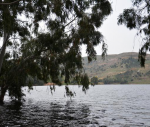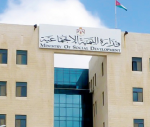You are here
Sudan marks anniversary of uprising that ousted Bashir
By AFP - Dec 19,2019 - Last updated at Dec 19,2019

Sudanese protesters cheer upon arriving from the capital Khartoum to the town of Atbara on Thursday to celebrate the first anniversary of the uprising that toppled Omar Al Bashir (AFP photo)
KHARTOUM — A year after demonstrations broke out in Sudan over soaring bread prices, celebrations are planned across the country on Thursday to mark the uprising that brought down veteran autocrat Omar Al Bashir.
In the central town of Atbara, the cradle of the revolt, hundreds of people are expected to arrive on a train from Khartoum to stay for a week of festivities.
Organised by the transitional government and the protest movement, it is a tribute to the thousands of demonstrators who travelled in the opposite direction to the capital at key moments during the uprising.
In Khartoum, celebrations are planned in several districts, particularly at the city's Freedom Square, which was renamed in honour of the protesters.
"I'll remember the first day of our protest under tear gas and live ammunition, which didn't stop us," said Hana Hussein, 21.
"Now we can take to the streets in celebration. It's a great achievement of our revolution."
Badr Mohamed, 22, plans to use the uprising anniversary to demand accountability for the killings of fellow protesters.
"I will participate by carrying a banner calling for justice."
Dozens killed
It was in the dusty streets of Atbara on the banks of the River Nile that Sudanese held their first rallies in December 2018 against a government decision to triple the price of bread.
The protests swept across the African nation and by April, they had toppled Bashir, who had been in power for three decades.
According to doctors linked to the protest movement, more than 250 people were killed in violence related to the demonstrations against Bashir and the military rulers who initially replaced him.
Amnesty International, which says at least 177 people were killed, on Thursday called on Sudan's transitional authorities to honour their commitments to restore the rule of law and protect human rights.
"The new Sudan authorities must ensure that members of the security forces who committed horrific crimes or used excessive force against protestors are held accountable in fair trials without recourse to the death penalty," said Amnesty's Seif Magango.
In August, after protracted talks with the military, protesters and activists won a deal to set up a transitional government and pave the way for civilian rule.
Former senior UN official Abdalla Hamdok, a veteran economist, was appointed transitional prime minister.
Bashir, in prison since his overthrow, was sentenced on Saturday to two years' detention in a correctional centre for the elderly for corruption — the first of several cases against him.
Bashir is also wanted by the International Criminal Court on charges of genocide, war crimes and crimes against humanity.
The accusations relate to his role in the Darfur war that broke out in 2003, when ethnic minority rebels took up arms against his Arab-dominated government, which they accused of marginalising the region.
Related Articles
ATBARA, Sudan — Sudan has celebrated one year since the start of peaceful protests that ended a dictatorship, but families of the slain "mar
KHARTOUM — Sudanese protesters rallied Wednesday against a deepening economic crisis but a large police and army presence prevented mass dem
KHARTOUM — President Omar Al Bashir, who ruled Sudan in autocratic style for 30 years, was overthrown in a military coup on Thursday, but pr


